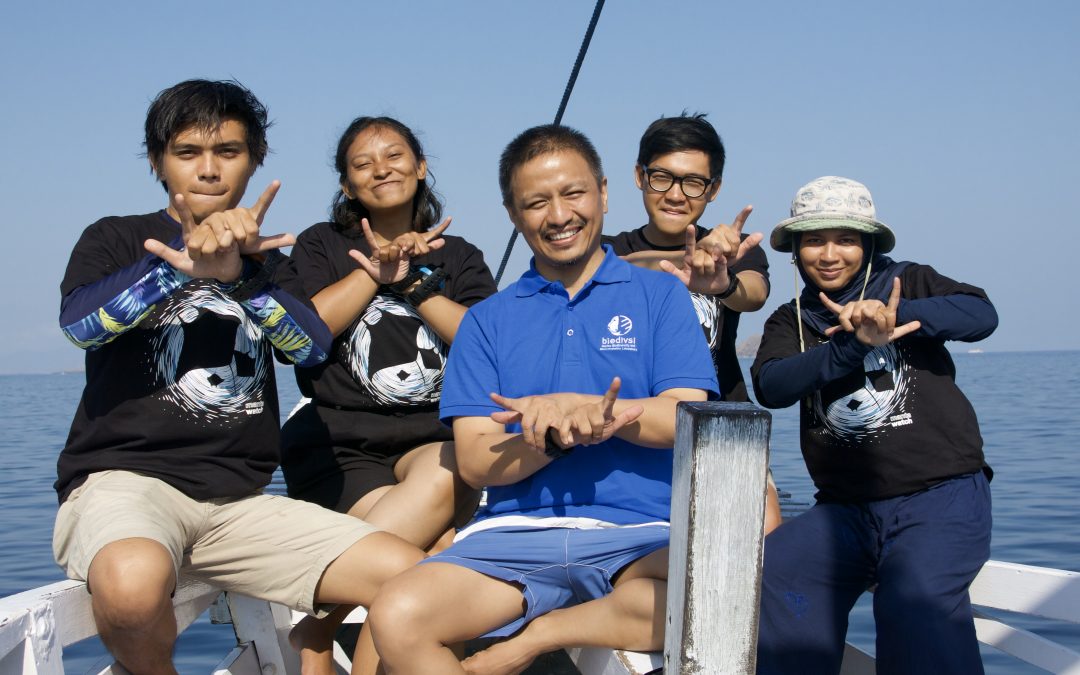It’s a new day, and the MantaWatch Internship Programme is back in the classroom. Today our focus is sustainable fisheries and partnerships.
But before that, it was time to think about data quality. Good conservation management should be based on good evidence, and that means good data. Any serious conservation efforts should include a process to ensure data quality.
Our first step was a simple visual review of the data collected by the interns so far. We were looking for obvious data quality issues, and this process paid off. We found a few small issues that could easily have influenced analyses and conclusions later on. After modifying incorrect survey times and adding missing data, we turned to data analysis.
The interns have been learning how to use R to analyse and visualise data. This provides a quick and easy way to eyeball data, and check for any outliers or errors. By plotting our data on maps and graphs, we can better see whether patterns make sense. Again we discovered a couple of minor issues, and the time spent doing these reviews will surely improve the quality of final results.
Then it was time to talk about sustainable fisheries. While this year’s interns come from marine science backgrounds, the topic of fisheries management was quite new to them. But this is an important topic when considering marine wildlife conservation, and we dove straight into the detail. Fish stock assessments, the concept of maximum sustainable yields and maximum economic yields, and the ways that markets and fisheries managers can influence the behaviours of fishers, safety at sea and the sustainability of fish stock. We finished this session by playing What’s the Catch, a fishing game the demonstrates the impact of different fishing gears and management scenarios
From theory to practice, and today we had a special guest to help. Dr Hawis Madduppa is the Executive Director of the Indonesia Blue Swimming Crab Association and the Head of Marine Biodiversity and Biosystematics at IPB University. He joined us to share his interesting insights about recent trends in Indonesia’s fisheries management, the roles of government and industry, and the elements of successful collaboration between sectors.
With Dr Hawis we learned how the fishing industry and government have embarked on a fishery improvement project that is working towards Marine Stewardship Council certification. This collaboration is helping to ensure that populations of blue swimming crab remain healthy, while fishing communities benefit from eco-labelled products that are more competitive in the marketplace. A great example of a win-win conservation solution.
To learn more about sustainable fisheries and partnerships, check out these videos.


